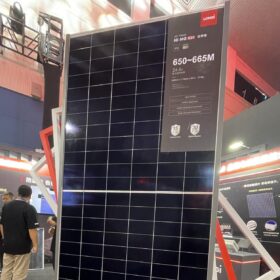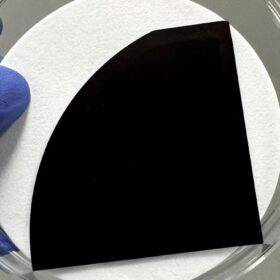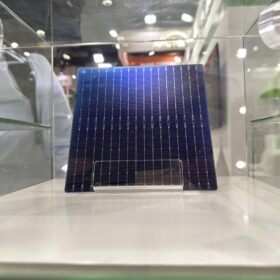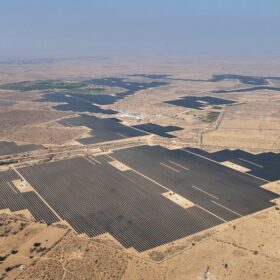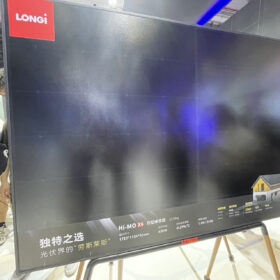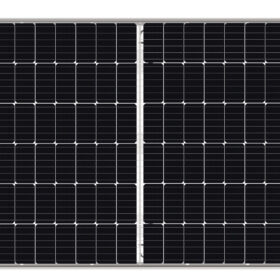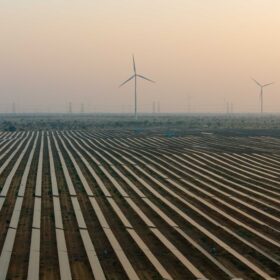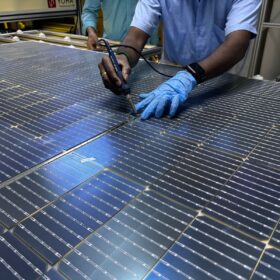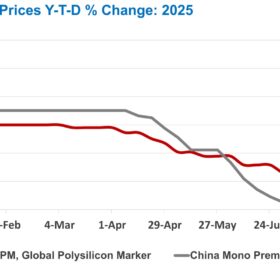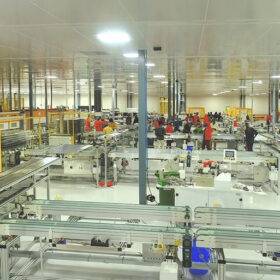Longi introduces 665 W HPBC photovoltaic modules
The Chinese PV manufacturer said its new module series has a power conversion efficiency of up to 24.8% and temperature coefficient is -0.26% per C.
Longi, ANU develop gettering-based process to improve n-type wafer quality
The Chinese module maker and the Australian National University utilized phosphorus diffusion gettering and another defect mitigation strategy to improve the quality of n-type wafers. The proposed process contributed to improve the material quality especially towards the tail-ends.
Longi achieves 34.6% efficiency for two-terminal tandem perovskite solar cell prototype
In a paper published in nature, the Chinese module maker explained that the 33.9%-efficient tandem device it unveiled in December 2023 is based on a bilayer intertwined passivation strategy that combines efficient electron extraction with further suppression of nonradiative recombination. It also revealed that its two-terminal tandem prototype devices achieved an efficiency of 34.6%.
All solar cell efficiencies at a glance – updated
The research group led by Professor Martin Green has published Version 64 of the solar cell efficiency tables. There are 19 new results reported in the new version.
India installed 14.7 GW solar in FY 2024
India installed about 11.7 GW of utility-scale solar capacity and another 3 GW of rooftop solar capacity in the twelve months ending March 31, 2024.
Longi launches ultra-black HPBC solar modules for residential applications
The Chinese manufacturer said its new Hi-MO X6 Artist series has an efficiency of up to 22.3% and a power output ranging from 420 W to 430 W. The smaller version is currently priced at CNY 298 ($41.7)/m2 and the largest model is sold at CNY 268/m2.
Longi claims 34.6% efficiency for perovskite-silicon tandem solar cell
The European Solar Test Installation (ESTI) has confirmed Longi’s achievement of a world record-breaking efficiency rating of 34.6% for a perovskite-silicon tandem solar cell.
Longi presents 24.4%-efficient 660 W HPBC solar panel
Intended for applications in utility scale PV projects, the new Hi-MO 9 module is available in eight versions with power output ranging from 625 W to 660 W and power conversion efficiency spanning from 23.1% to 24.4%.
Longi introduces 630 W HPBC photovoltaic modules with 23.3% efficiency
The Chinese manufacturer said its new Hi-MO X6 Scientist series has a temperature coefficient of -0.28%/C and a power output ranging from 620 W to 630 W. They rely on the company’s proprietary hybrid passivated back contact (HPBC) cell technology.
India expected to install 21.2 GW of solar in FY 2025
JMK Research projects 21.2 GW of new solar capacity addition in FY 2025. This will comprise 16.5 GW of utility-scale, 4 GW rooftop, and 700 MW off-grid installations.
